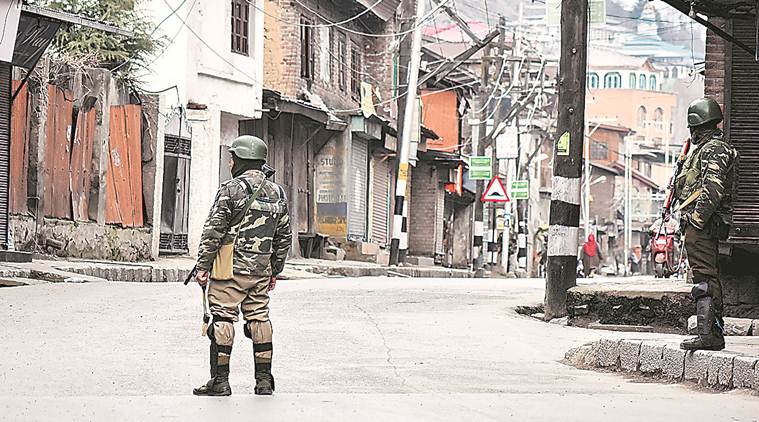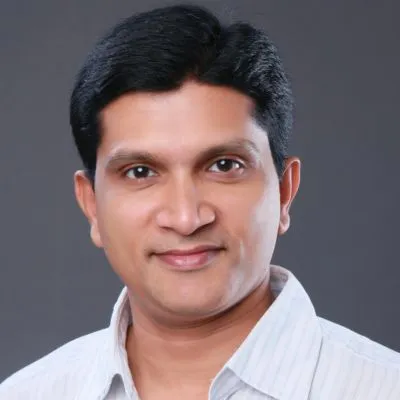It said “restriction upon such fundamental rights should be in consonance with the mandate under Article 19 (2) and (6) of the Constitution, inclusive of the test of proportionality”.

The bench of Justices N V Ramana, R Subhash Reddy and B R Gavai, ruling on petitions by Kashmir Times Executive Editor Anuradha Bhasin and Congress leader Ghulam Nabi Azad who challenged curbs imposed in J&K following the abrogation of Article 370 on August 5 last year, also sought to remove the cloak of secrecy surrounding orders for Internet shutdown and prohibitory orders under Section 144 of the Code of Criminal Procedure.
Story continues below this ad
It directed the State/competent authorities “to publish all orders in force and any future orders under Section 144, CrPC and for suspension of telecom services, including Internet, to enable the affected persons to challenge it before the High Court or appropriate forum”.
While it found “ample merit” in the government argument that Internet could be used to fan terrorism and challenge India’s sovereignty and integrity — “it goes without saying that the Government is entitled to restrict the freedom of speech and expression guaranteed under Article 19 (1) (a) if the need be so, in compliance with the requirements under Article 19 (2). It is in this context, while the nation is facing such adversity, an abrasive statement with imminent threat may be restricted, if the same impinges upon sovereignty and integrity of India — the bench said “the question is one of extent rather than the existence of the power to restrict”.
It reminded the government that any “order suspending internet services indefinitely is impermissible under the Temporary Suspension of Telecom Services (Public Emergency or Public Service) Rules, 2017” and “suspension can be utilized for temporary duration only”.
It asked the government “to review all orders suspending internet services forthwith” and revoke those which are not in accordance with the law laid down by it. “In future, if there is a necessity to pass fresh orders, the law laid down herein must be followed.”
Story continues below this ad
“Any order suspending internet issued under the Suspension Rules, must adhere to the principle of proportionality and must not extend beyond necessary duration. Any order suspending internet under the Suspension Rules is subject to judicial review based on the parameters set out herein.”
“The existing Suspension Rules neither provide for a periodic review nor a time limitation for an order issued under the Suspension Rules. Till this gap is filled, we direct that the Review Committee constituted under Rule 2 (5) of the Suspension Rules must conduct a periodic review within seven working days of the previous review, in terms of the requirements under Rule 2 (6),” it said.
Writing for the bench, Justice Ramana said Section 69A of the Information Technology Act, 2000, read with Information Technology (Procedures and Safeguards for Blocking for Access of Information by Public) Rules, 2009, allows blocking of access to information which was upheld by the court in the Shreya Singhal vs Union of India case (March 24, 2015 ruling).
However, “the aim of the section is not to restrict/block the internet as a whole, but only to block access to particular websites on the internet. Recourse cannot, therefore, be made by the Government to restrict the internet generally under this section.”
Story continues below this ad
The bench said “expression through the internet has gained contemporary relevance and is one of the major means of information diffusion. Therefore, the freedom of speech and expression through the medium of internet is an integral part of Article 19 (1) (a) and accordingly, any restriction on the same must be in accordance with Article 19(2) of the Constitution.”
It said there are certain trades which are completely dependent on internet. “Such a right of trade through internet also fosters consumerism and availability of choice. Therefore, the freedom of trade and commerce through the medium of the internet is also constitutionally protected under Article 19 (1) (g), subject to the restrictions provided under Article 19 (6).”
The bench rejected the government’s argument that selective access to internet could not have been allowed due to lack of technology and said “if such a contention is accepted, then the Government would have a free pass to put a complete internet blockage every time. Such complete blocking/prohibition perpetually cannot be accepted by this Court”.
It said “State/concerned authorities are directed to consider forthwith allowing government websites, localized/limited ebanking facilities, hospitals services and other essential services, in those regions, wherein the internet services are not likely to be restored immediately”.
Story continues below this ad
On J&K, the bench said it “would only observe that achievement of peace and tranquility within the erstwhile State… requires a multifaceted approach without excessively burdening the freedom of speech. In this regard, the Government is required to consider various options under Article 19 (2) of the Constitution, so that the brunt of exigencies is decimated in a manner which burdens freedom of speech in a minimalist manner”.
The bench pulled up the government for not producing all orders regarding internet curbs and clamping of prohibitory orders under Section 144. On why it had asked for the orders, it said “Article 19 of the Constitution has been interpreted to mandate right to information as an important facet of the right to freedom of speech and expression”, and “there is no dispute that democracy entails free flow of information. There is not only a normative expectation under the Constitution, but also a requirement under natural law, that no law should be passed in a clandestine manner”.
On Section 144, the bench said that power under the provision “being remedial as well as preventive, is exercisable not only where there exists present danger, but also when there is an apprehension of danger. However, the danger contemplated should be in the nature of an ‘emergency’ and for the purpose of preventing obstruction and annoyance or injury to any person lawfully employed”.
“The power under Section 144, CrPC cannot be used to suppress legitimate expression of opinion or grievance or exercise of any democratic rights” and such order “should state the material facts to enable judicial review of the same”. It said repetitive orders under Section 144 would be an abuse of power and asked the authorities to review forthwith the need for continuance of any such order.

 The bench rejected the government’s argument that selective access to internet could not have been allowed due to lack of technology
The bench rejected the government’s argument that selective access to internet could not have been allowed due to lack of technology







